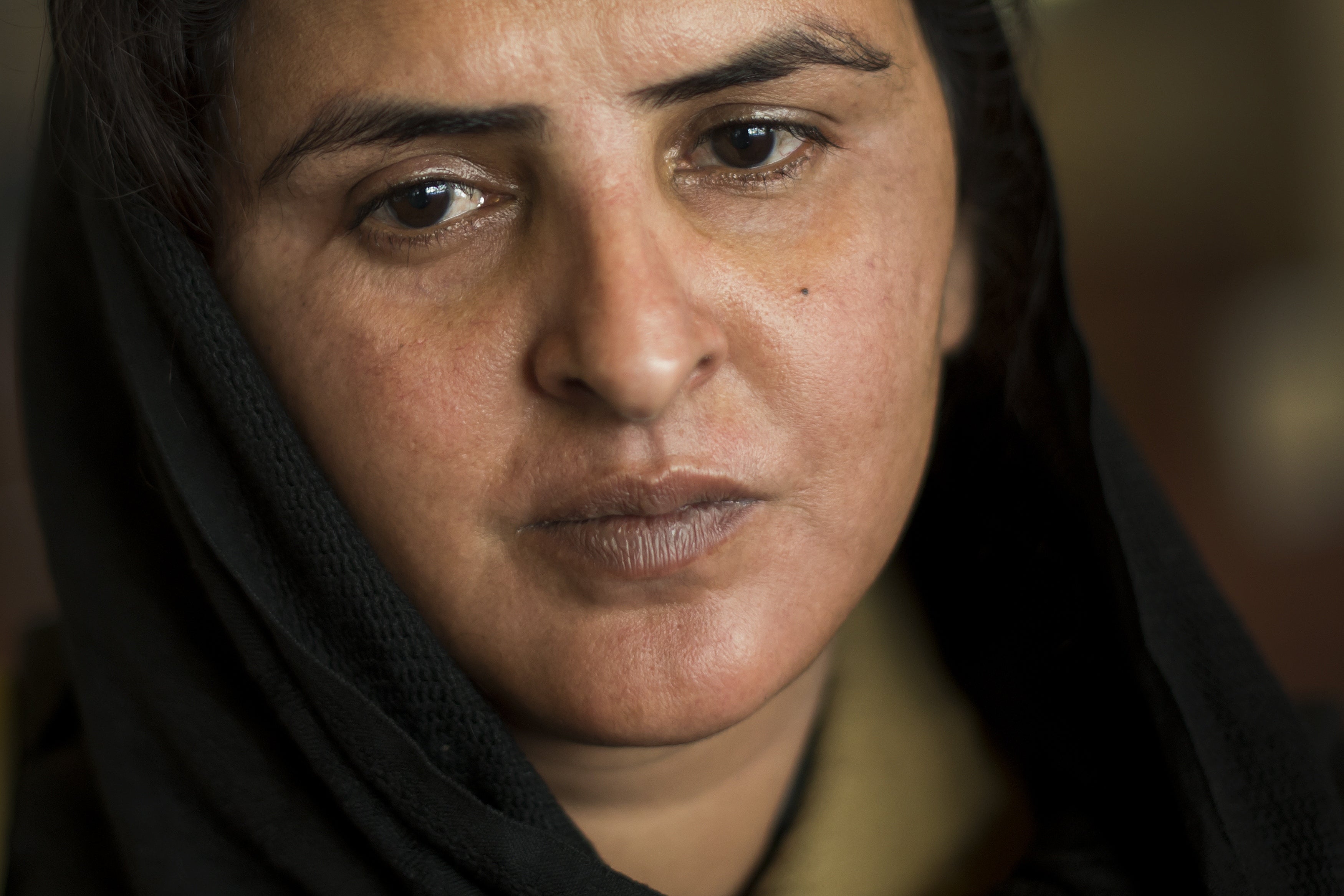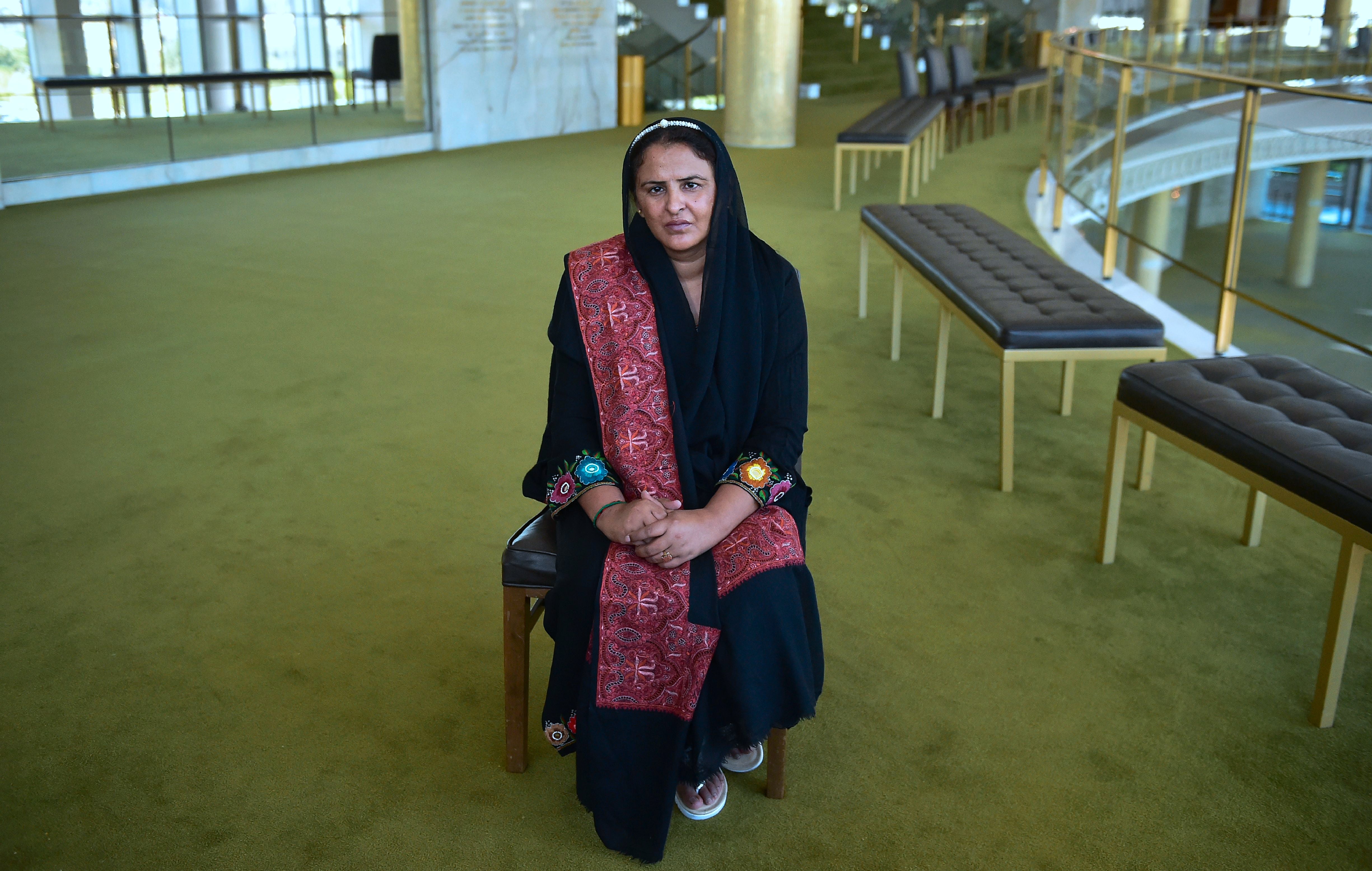The woman whose fight for justice has inspired a generation in Pakistan
Gang-raped two decades ago in rural Pakistan, Mukhtar Mai defied tradition and prejudice to demand that her voice be heard. Charlotte McDonald-Gibson and Samira Shackle celebrate her story

When Mukhtar Mai walked into a police station in rural Pakistan in 2002 to report a gang rape, she felt completely alone. Her family shunned her; the village elders who ordered the rape expected her to commit suicide, and there were no female police officers to help her through her ordeal.
But Mai did not give up, and now, almost 20 years later, she no longer feels alone. A whole generation of Pakistan’s women stands with her – inspired by the bravery of an illiterate woman, from a poor community in Punjab province, who defied tradition and prejudice to take a stand for victims of violence and injustice.
The fight did not stop that day in June as she stood her ground in the police station and demanded her voice be heard. Years of gruelling court battles followed to try to bring her rapists to justice. More recently, there have been death threats from extremists and hostility from some politicians as she continues to champion women’s rights through a charity bearing her name.
“There are always dangers, but I am not afraid and I will never stop what I am doing,” says Mai today. “When I began my struggle in 2002, I didn't have support. I want to give it to other women so they don't have to go through what I went through.”
“Pakistan remains one of the worst places on Earth to be a woman. It languishes at the bottom of global lists on education, healthcare, political representation and employment. Despite having elected the first ever female leader of a Muslim nation, the late Benazir Bhutto, Pakistan is a deeply male-dominated society.
Traditional values and conservative religious beliefs leave many women on the peripheries of society, especially in rural areas where poverty and lack of education mean little has changed in centuries. With justice often in the hands of tribal councils, it is a struggle to implement new laws.
Earlier this month, however, more women than ever before turned out to vote in elections, and a new generation inspired by people like Mai is demanding a say in Pakistan's future.
As far as women’s social, economic and political status is concerned, there has not been much improvement because of the general overall poverty
“I think she [Mai] was the most brave woman in Pakistan,” says 25-year-old Saba Ismail, the executive director of Aware Girls, a gender-empowerment group she set up when she was just 15. “She faced all these difficult situations in such a male-dominated society.”
Mai’s long battle for justice began when she was gang-raped in a village in Punjab province, a punishment ordered by a rival clan for an alleged affair between her younger brother and a woman from another village. She was 30 at the time.
Within a few months, six men had been sentenced to death for the rape. A few years later, however, another court cleared five of them, citing a lack of evidence. Mai launched appeals, and refused to hide away, telling her story and picking up awards at home and aboard.
Then, in 2011, to an outcry from human rights organisations, the Supreme Court held up the acquittal.
Sexual violence is often committed as a form of punishment, and many rapes go unreported because of the social stigma, with victims sometimes expected to take their own lives. Those who do report attacks still face prejudice from officials and very low conviction rates.
There are no centralised statistics on rape, but Pakistan’s Express Tribune newspaper reported a figure of 2,713 cases of rape in just 15 districts of one province last year, giving some indication of the scale of the problem.
Although Mai did not ultimately get the justice she sought, her battle has given Pakistan’s young women something more lasting: a role model.
“Society gave her justice,” says Dr Farzana Bari, an activist and professor at Quaid-i-Azam University in Islamabad.

Dr Bari worries that the situation for Pakistan’s women only seems to be getting worse, despite increasing female representation in politics.
“As far as women’s social, economic and political status is concerned, there has not been much improvement because of the general overall poverty,” Dr Bari says.
On the 2012 Global Gender Gap Index, compiled annually by the World Economic Forum, Pakistan languishes in 134th position, with only Yemen considered a worse place to be a woman out of the 135 countries surveyed. The index puts female literacy at just 40 per cent, compared with 69 per cent for men. Pakistan has one of the lowest levels of female enrolment in primary schools.
But activists see hope in the changing demographics of the country. Nearly two-thirds of Pakistan's 180 million people are under 30, with 25 million in that age group eligible to vote. “We really hope the next few years will be good for women’s rights because the female voter turnout rate is very high and ... they will hold accountable all the political parties and the parliamentarians,” says Ismail.
Mai, too, feels encouraged and inspired by the new generation of female activists, and by the bravery of those who come to her organisation seeking help. She says she feels proud to have played her part in making sure all women are heard, regardless of gender or wealth.
“Am I a role model? After what happened to me, I think women are not so afraid to raise their voices,” she says. “We help women who have been raped, or who have to run from their own homes because of problems with their husbands. Before, they would commit suicide or be killed by their parents. Now they are fighting.”
Join our commenting forum
Join thought-provoking conversations, follow other Independent readers and see their replies
Comments